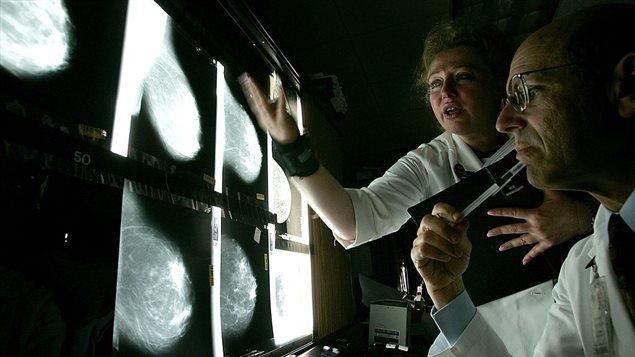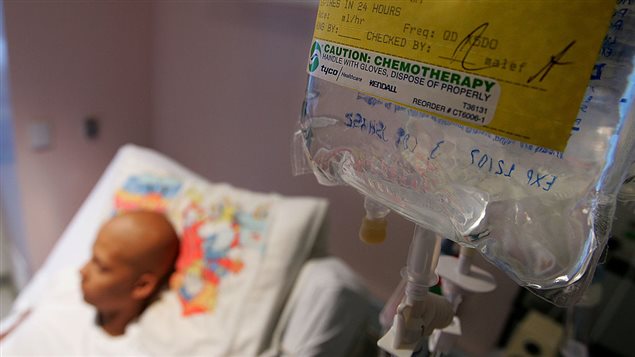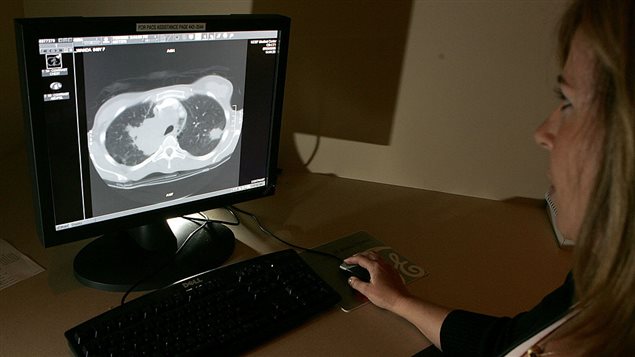Almost every second Canadian is expected to be diagnosed with cancer during his or her lifetime, and one in four Canadians will die from the disease, according to a new report by the Canadian Cancer Society.
In 2017, an estimated 206,200 Canadians will be diagnosed with some form of cancer (excluding non-melanoma skin cancer) and an estimated 80,800 will succumb to the disease, making cancer the leading cause of death in Canada, the charitable organization said Tuesday in its annual cancer statistics report.
“This is a new number that confirms the trend that we’re also seeing in the U.S., in the UK and also Australia,” said André Beaulieu, a spokesperson for the society. “It isn’t unique to Canada, unfortunately more people around the world are going to be living with cancer.”
(click to listen to the interview with André Beaulieu)
ListenSobering statistics

The new statistics a reflection of Canada’s growing and ageing population, Beaulieu said.
About 90 per cent of all the cancers that we expect to be diagnosed in 2017 will be among Canadians 50 years of age and older, he said.
Since the peak in the cancer death rate in Canada in 1988, it is estimated that over 179,000 deaths have been avoided as a result of cancer prevention and control efforts, the report said.
“Cancer is a very complicated disease,” Beaulieu said. “Causes of cancer are multifactorial: it can be lifestyle, the fact that you smoked, if there is a family history of cancer – all of this contributes to your chances (of getting) or not getting cancer.”
Lung cancer leading killer
Of newly diagnosed cases, half are expected to be lung, colorectal, breast and prostate cancers, the report warned.
Lung cancer continues to be the most commonly diagnosed cancer overall (14 per cent of all cancers diagnosed) and the leading cause of cancer death.
“Lung cancer continues to be the deadliest cancer of all in Canada,” Beaulieu said. “It kills more Canadians than colorectal, breast and prostate cancer combined. It actually kills twice as many women as breast cancer, and four times more men than prostate cancer.”
In 2017, 5,500 Canadians are expected to be diagnosed with pancreatic cancer and 4,800 are expected to die of this disease, according to the report. Pancreatic cancer has the lowest survival rate of all the major cancers at 8 per cent and only about half of people diagnosed survive beyond four months.
‘Glass half-full’

Still Beaulieu wants Canadians to be optimistic.
“The glass is not half-empty, the glass is actually half-full,” Beaulieu said. “And can we fill it up even more? Certainly!”
Researchers have seen a continuous growth in cancer survival rates, he said.
The 5-year cancer survival rate has increased from 25 per cent in the 1940s to 60 per cent today, and could reach 80 per cent in the years to come, Beaulieu said.
“I think we have to continue to think of prevention,” he said. “As an individual look at your lifestyle and see what you can do to improve your health and to protect yourself from certain cancers.”
Various levels of government also need to organize to be able to care for all the Canadians that will be diagnosed with cancer, he said.
“And we need to continue to invest in research because there are great advances that are being made or are on the verge of being discovered,” Beaulieu said.







For reasons beyond our control, and for an undetermined period of time, our comment section is now closed. However, our social networks remain open to your contributions.